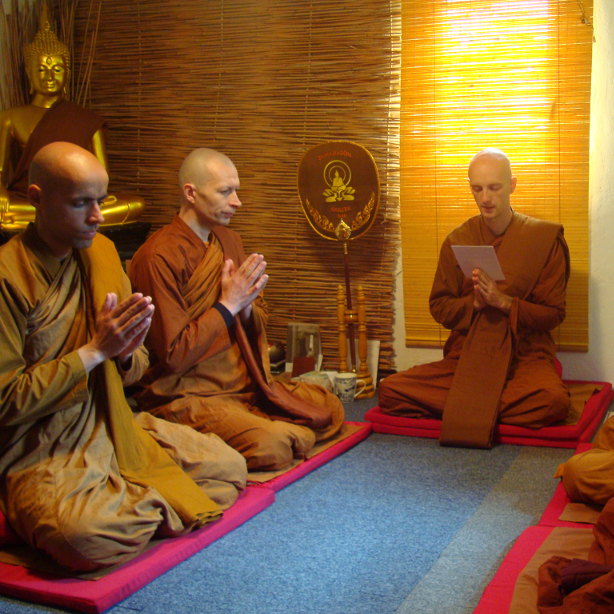How to become a monk?

If you are interested in becoming a monk, then Samanadipa is also one of places to check out first as a guest. Then you may decide that you’d like to make a commitment to training in the community as an anagarika – literally ‘a homeless one.’ This involves shaving one's head, training within the Eight Precepts and putting aside concerns outside the monastery. You can communicate your interest in making this commitment to the Guardian, and he can consider your request.
After weeks or months as an anagarika, you may feel that you’d like to continue the training and request ‘ordination’ as a monk. Again this is something that the a teacher has to feel is suitable, as he has to take on the responsibility of guiding you through Dhamma and Vinaya. According to the Rule (Vinaya), there is no ‘Going Forth’ as a monk without a teacher, so it is important that you feel you have access to someone you can trust and respect.
Ordination as a monk is in two stages: ‘Going Forth’ (pabbajja) as a novice (samanera) – whereupon you relinquish money and wear monk’s robes – and ‘Acceptance’ (upasampada) as a bhikkhu. Acceptance is a stage that you may enter or not, depending on your capacity and interest. You have to train for a number of months as a samanera first; and then it is up not only to the Guardian but to the Sangha of bhikkhus to decide whether you are ready for Acceptance. The bhikkhu ordination require an initial commitment of five years of training under a teacher.
If you are interested in what is outlined here, you may come and stay for a while, and talk things over with a senior monk.
A FEW BASICS
Age: Generally, making the transition becomes more difficult as one becomes older. Therefore, if you have a monastic aspiration, don’t wait too long. If you are already older, don't be put off; full ordination as a bhikkhu is only one way of living in a monastic community.
Gender: some communities offer training to both men and women. This hermitage offers training for men only.
Money: There is never any charge for staying at any of our monasteries, or for receiving teachings. Everyday guests are welcome to make a donation according to their wish and ability. For those who stay on and request monastic training, it is suggested that during the time of postulancy (anagarika) they will be able to cover their personal costs (dentist, medical, clothing, toiletries, travel etc.) if they can manage the costs. After that, their needs are covered by donations offered to the monastery and managed by the monastery’s trustees.
